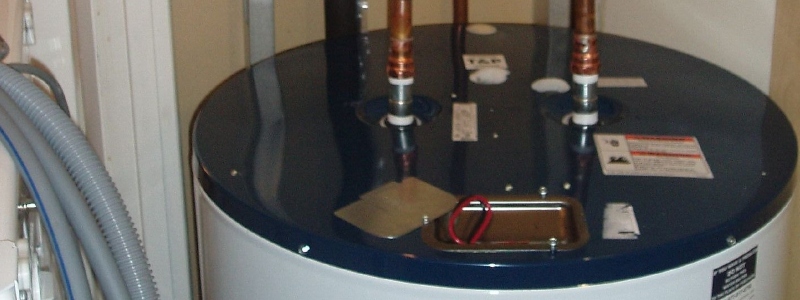You can significantly reduce energy use, save a good chunk of change annually, and make a positive difference for the environment by following these simple tips.
by Bruce Saller
WRITER
Behold the lowly water heater. Tucked away in the basement, out of sight and out of mind, and one of the biggest energy drains in your household.
In fact, heating hot water is the second highest use of energy after space heating and cooling according to the U.S. Energy Information Administration. An average electric water heater uses 4622 Kilo-WattHours/year, which costs about $450 in our area.
Here are some things that you can do both to help the environment and to save on energy use and energy costs.
- Set the hot water heater thermostat to 120 degrees.
- Install an insulating blanket around the hot water heater. This can reduce your heating costs by about 10% or $45/year.
- Don’t turn on the hot water in a sink if you are using it for less than about 20 seconds. The hot water will not reach the sink by that time.
- Consider replacing the unit with a heat pump hot water heater (HPHWH). A HPHWH uses between 25% and 30% of the energy of a conventional electric water heater, thereby saving you on average from $315 to $337 per year.
A HPHWH does cost about $1000 more than a conventional water heater, but there are federal tax credits of 30% of the total cost available (including installation) up to a $2000 credit. Dominion Energy is also offering up to a $400 rebate. You should be able to recover the additional costs of installing an HPHWH very quickly, between the rebates and the annual savings.
HPHWHs do require at least 100 sq ft of open space, because they transfer heat from room air to the water. You may be able to put a grill in the wall, if your water heater is in a closet or small room.
Bruce Saller is a retired engineer and active participant in the Fredericksburg Clean and Green Commission. This series provides practical steps we can all take to reduce our carbon footprint – and often save money.









